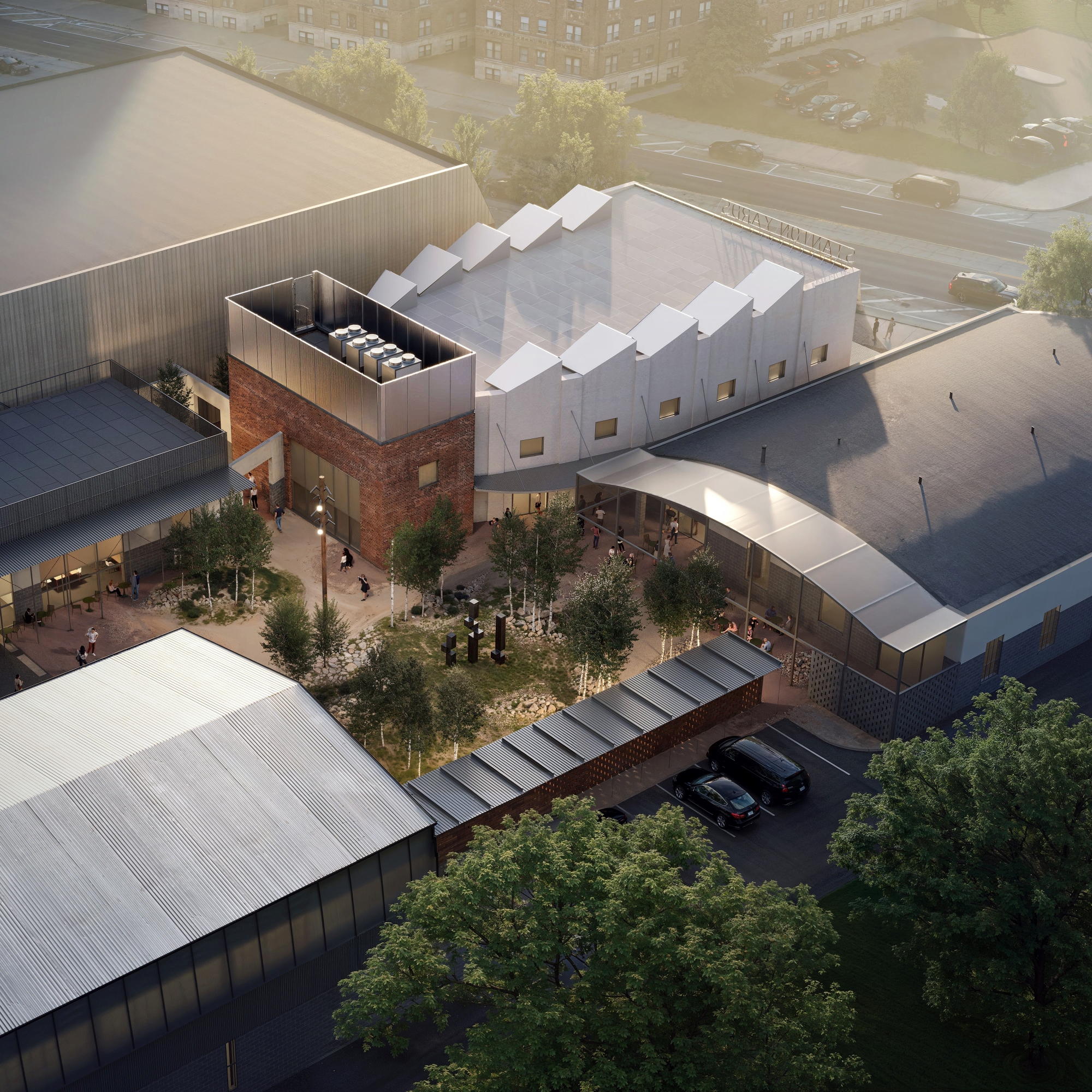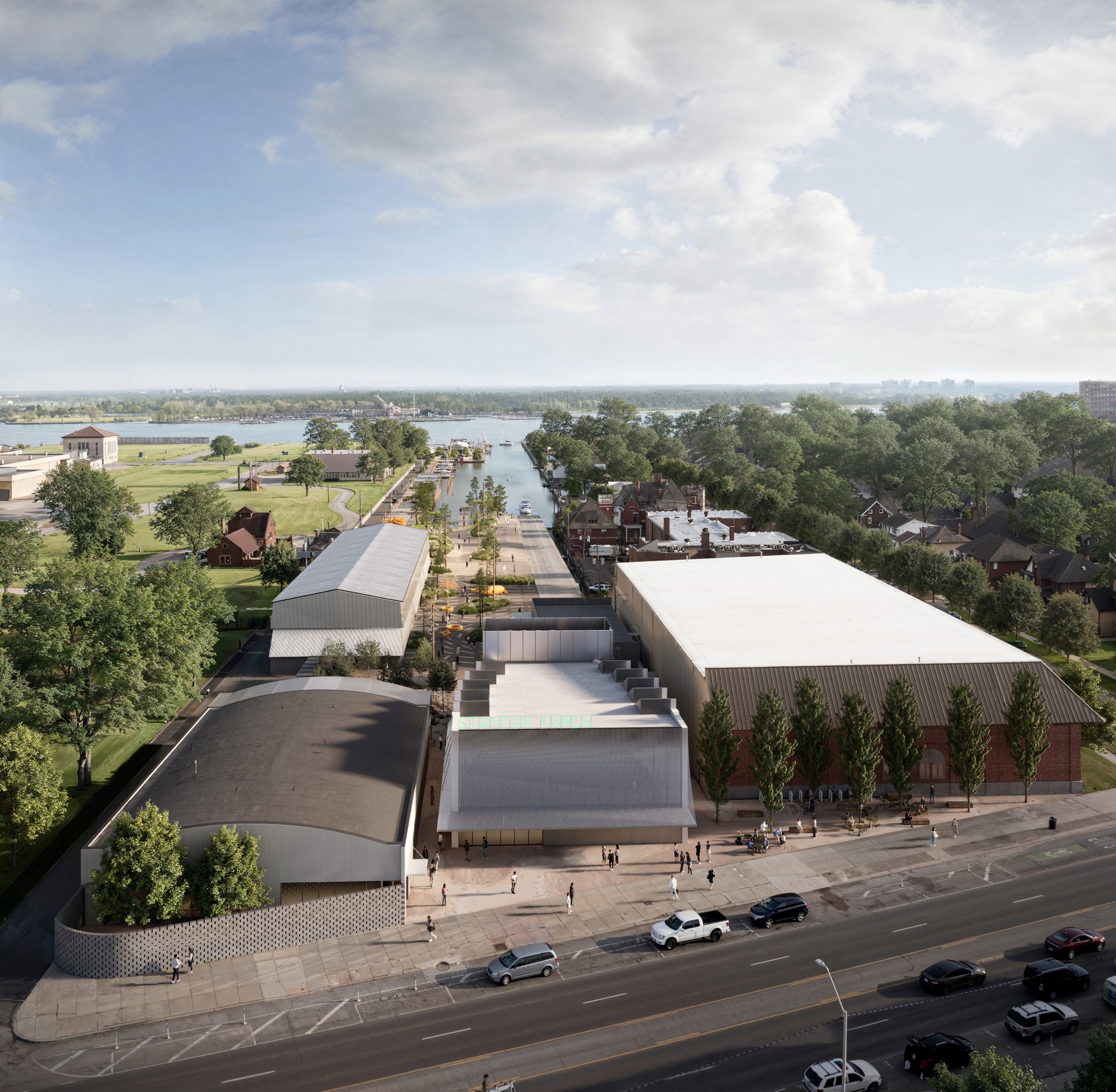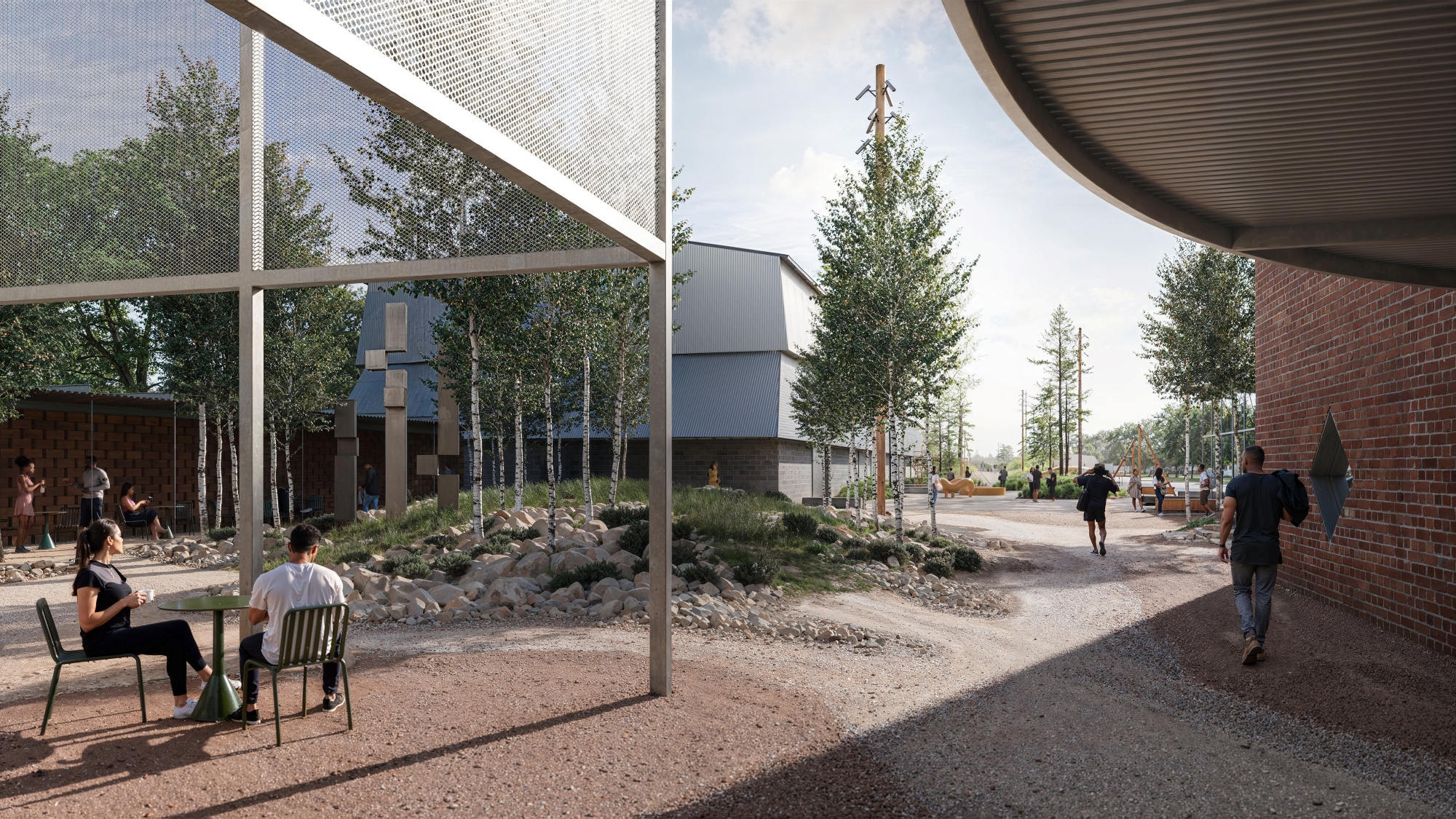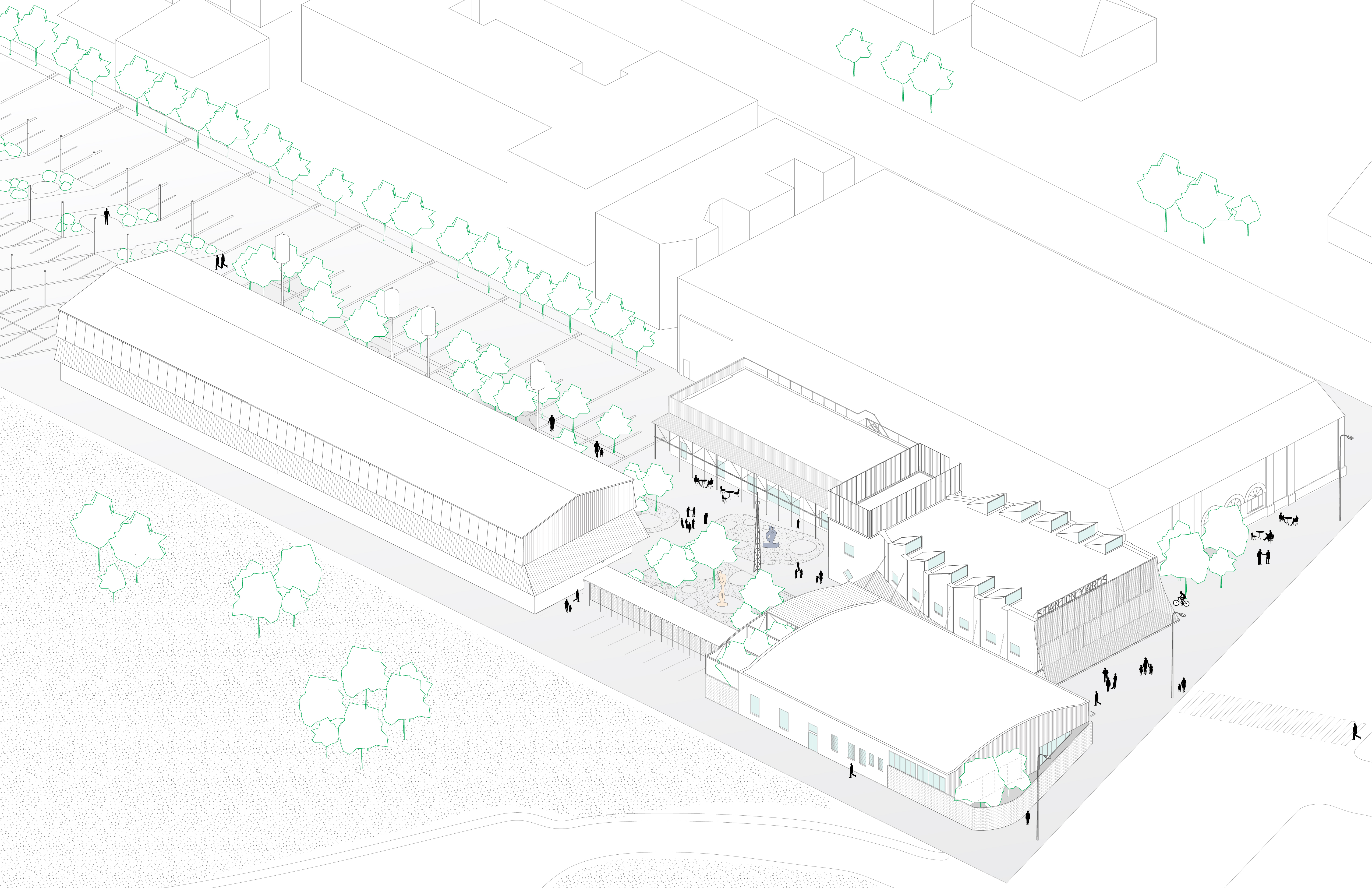Stanton Yards — Aerial View
Stanton Yards, Detroit, Michigan, USA,
The team at SO–IL is excited to partner with Anthony & JJ Curis of Detroit’s Library Street Collective in bringing a new arts campus to the Stanton Yards marina, the latest in a multisite project supporting the city’s cultural and artistic renaissance. This new hub will extend a burgeoning arts community in the area, forming a trio with the Collective’s nearby projects at a revitalized 110-year-old church and a defunct bakery and warehouse space.
Our masterplan design for the new Stanton Yards converts four industrial buildings of varying sizes into a cohesive multi-use arts campus alongside a functional marina on the Detroit River. With interior spaces ready to be tailored to any number of art-making, workshop, educational, performance, gallery, and recreational possibilities, our intervention creates a porous space in which programs exist in dialogue with the city and one another.
A distinctive sloped mesh canopy over a new entry plaza along Jefferson Ave creates a renewed public identity for the campus. Strategic perforation of street-facing structures opens additional thoroughfares for public access, drawing users and visitors into a lush courtyard at the site’s core. With access to all four buildings as well as the marina, this central courtyard will act as the beating heart of the campus, supporting community events, art installations, and leisure activities. A canopied exterior walkway defines a boundary and additional entry point, while surgical demolition of small existing structures increases outdoor space.
The design celebrates the site’s industrial character, while clearly demonstrating its renewed purpose and identity. Revitalized facades for all four buildings incorporate varying levels of layering, reconditioning, and reuse of existing materials. Corrugated metal siding is complemented by vast stretches of clear polycarbonate at roof height, drawing in abundant natural light, while additional windows and skylights add to an overall sense of openness and porosity. Polished metal grating, hammered concrete, and screens of layered brick create a palette of familiar yet contrasting textures. Existing masonry has paint added or removed, physicalizing a relationship between the site’s history and future. Extensive landscaping by Office of Strategy + Design (OSD) reclaims the industrial locale, enhancing the site’s natural beauty.
This project marks the latest at SO–IL in a continuing practice of transforming old buildings into fresh sites for new ideas. As a regenerated space for forward-thinking art-makers, educators, and community builders, the new Stanton Yards joins Amant and Site Verrier de Meisenthal in a series of endeavors in adaptive reuse, prioritizing sustainability, reconnection to the natural world, and reimagination of our relationship to the built environment.
Stanton Yards,


Stanton Yards — Street View

Stanton Yards — Courtyard View

Stanton Yards — Axonometric